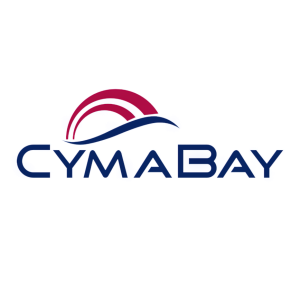CymaBay Announces European Medicines Agency Accepts for Review the Marketing Authorization Application for Seladelpar for the Treatment of Primary Biliary Cholangitis
MAA Validation Follows Recent Applications for Seladelpar to the U.K. MHRA and U.S. FDA
NEWARK, Calif., March 04, 2024 (GLOBE NEWSWIRE) -- CymaBay Therapeutics, Inc. (NASDAQ: CBAY), a biopharmaceutical company focused on innovative therapies for patients with liver and other chronic diseases, today announced that the Marketing Authorization Application (MAA) for seladelpar, for the treatment of primary biliary cholangitis (PBC) including pruritus in adults without cirrhosis or with compensated cirrhosis (Child Pugh A) who are inadequate responders or intolerant to ursodeoxycholic acid), has been validated and will now be reviewed by the European Medicines Agency (EMA).
Seladelpar is an investigational, potent, selective peroxisome proliferator-activated receptor delta (PPARδ) agonist or delpar, in development for PBC treatment. The MAA application includes data from across the seladelpar PBC clinical development program in over 500 people with PBC, including from the pivotal, double blind, placebo-controlled, global Phase 3 RESPONSE study, recently published in the New England Journal of Medicine. The study’s primary endpoint measure reflects registrational studies of the current second line PBC treatment authorized by the EMA. In this study seladelpar demonstrated statistically significant improvements in biochemical markers of disease progression and PBC-related pruritus (itch) pre-specified endpoints. The number of adverse events was similar in the groups treated with seladelpar and placebo.
The application is further supported by data from the Phase 3 ENHANCE study, the long-term open label ASSURE study, Phase 2 studies, pre-clinical studies and includes chemistry, manufacturing, and controls data.
“People living with PBC in Europe today have limited treatment options and can face both disease progression and a lifetime of symptoms like itch and fatigue that can significantly impact their quality of life. New treatment options are needed,” said Klara Dickinson, Chief Regulatory and Compliance Officer, CymaBay Therapeutics. “Validation of the European Marketing Authorization Application for seladelpar and the start of the agency’s formal review is an important step forward in seladelpar’s journey to potential approval in Europe. We look forward to further discussion with the agency and rapporteurs as they conduct their review.”
Under the European centralized licensing procedure, the EMA Committee for Medicinal Products for Human Use (CHMP) will review the application for all 27 Member States of the European Union, as well as Iceland, Liechtenstein and Norway.
Seladelpar received Priority Medicines (PRIME) status from the EMA in 2016, as part of its program to enhance support for the development of medicines that target an unmet medical need. Seladelpar has been accepted for review by the U.K. Medicines and Healthcare products Regulatory Agency. The U.S. Food and Drug Administration (FDA) has accepted a New Drug Application for seladelpar for priority review.
PBC is a rare, chronic inflammatory liver disease that can lead to liver cirrhosis and an increased risk of liver-related mortality. People living with PBC can experience symptoms that significantly impact their quality of life such as itch and fatigue. New treatment options seek to help prevent further disease progression by reducing inflammation and bile acids in the liver and help provide meaningful relief of pruritus.
About PBC
PBC is a rare, chronic inflammatory liver disease primarily affecting women (1 in 1,000 women over the age of 40 or about 130,000 total people in the US). PBC is characterized by impaired bile flow (known as cholestasis) and the accumulation of toxic bile acids in the liver, leading to inflammation and destruction of the bile ducts within the liver and causing increased levels of ALP, ALT, and GGT, enzymes found primarily in the liver, as well as total bilirubin. The most common early symptoms of PBC are pruritus (itching) and fatigue, which can be debilitating for some patients. Progression of PBC is associated with an increased risk of liver-related mortality.
About Seladelpar
Seladelpar, an investigational treatment for people with PBC, is a first-in-class oral, selective peroxisome proliferator-activated receptor delta (PPARδ) agonist, or delpar, shown to regulate critical metabolic and liver disease pathways in indications with high unmet medical need. Preclinical and clinical data support its ability to regulate genes involved in bile acid synthesis, inflammation, fibrosis and lipid metabolism, storage, and transport.
About CymaBay
CymaBay Therapeutics, Inc. is a clinical-stage biopharmaceutical company focused on improving the lives of people with liver and other chronic diseases that have high unmet medical need. Our deep understanding of the underlying mechanisms of liver inflammation and fibrosis, and the unique targets that play a role in their progression, have helped us receive breakthrough therapy designation (U.S. Food and Drug Administration), Priority Medicines status (European Medicines Agency) and orphan drug status (U.S. and Europe) for seladelpar, a first-in-class investigational treatment for people with PBC. Our evidence-based decision-making and commitment to the highest quality standards reflect our relentless dedication to the people, families, and communities we serve. To learn more, visit www.cymabay.com and follow us on X (formerly Twitter) and LinkedIn.
Cautionary Statements
Any statements made in this press release regarding potential regulatory acceptance of seladelpar, the timelines for regulatory review, the potential for seladelpar to treat PBC and potentially improve biochemical measures, clinical symptoms or outcomes of the disease are forward-looking statements that are subject to risks and uncertainties. Actual results and the timing of events regarding the further development of seladelpar could differ materially from those anticipated in such forward-looking statements as a result of risks and uncertainties, which include, without limitation, risks related to: the success, cost and timing of any of CymaBay's product development activities, including clinical trials; and effects observed in trials to date that may not be repeated in the future. Additional risks relating to CymaBay are contained in CymaBay's filings with the Securities and Exchange Commission, including without limitation its most recent Annual Report on Form 10-K, its Quarterly Reports on Form 10-Q and other documents subsequently filed with or furnished to the Securities and Exchange Commission. CymaBay disclaims any obligation to update these forward-looking statements except as required by law.
For additional information about CymaBay visit www.cymabay.com.
Public Relations Contact:
Theresa Dolge
Evoke Kyne
(609) 915-2156
Theresa.Dolge@evokegroup.com
Arran Attridge
CymaBay Therapeutics
aattridge@cymabay.com
Investor Relations Contact:
PJ Kelleher
LifeSci Advisors, LLC
(617) 430-7579
pkelleher@LifeSciAdvisors.com








